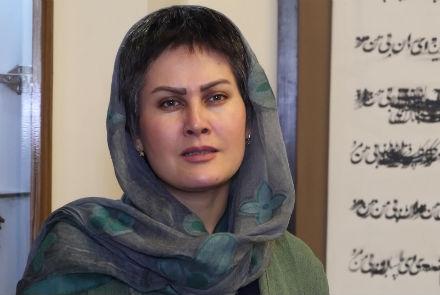Sahraa Karimi, filmmaker and director, was appointed as the first female General Director of Afghan Film, the country’s state-run film production company, through a merit-based process conducted at the Independent Administrative Reform and Civil Service Commission.
“Sahraa Karimi received the required marks for becoming head of the Afghan Film in a free and fair process which was attended by a large number of applicants,” said Farid Ahmad, spokesman of commission.
Karimi, 30, is a famous Afghan filmmaker who has over 10 years of experience in filmmaking and has directed more than 30 movies.
She has a PhD in cinema from the Academy of Music and Performing Arts, Film and TV Faculty in Bratislava, Slovakia.
Karimi is the first and the only woman in Afghanistan who has a PhD in cinema and filmmaking.
“War has affected Afghanistan’s cinema in terms of production, but our films can be very rich in terms of content because our country is full of colorful stories,” Karimi said.
Karimi has been actively engaged in filmmaking in Afghanistan in the last six years. She has produced and directed 30 short fictions, two documentary films and one long-fiction film.
Her pictures “Afghan Women behind Driving the Wheel, Memoirs of an Immigrant Girl, and In Search of Fantasy have won international awards.
In her latest movie entitled, Eve, Maryam, Ayesha, she has reflected the real life of Afghan women.
Karimi said her most important plan for Afghanistan’s cinema is to pave the way for allocating a budget for the filmmaking industry in the country.
“I will try to provide the conditions for filmmaking so that other filmmakers can narrate the stories of our country because if we do not tell the stories, other people will do it in a wrong manner,” Karimi said.
“Afghanistan cinema’s problems are multi-dimensional. For instance, there is no budget, there is no encouragement and also government, especially the Information and Culture Ministry, have no cooperation and artists have been separated,” said Engineer Latif, director and filmmaker.
Afghan film was established in 1968 but so far it has not done a considerable activity due to the four decades of the war in the country.

